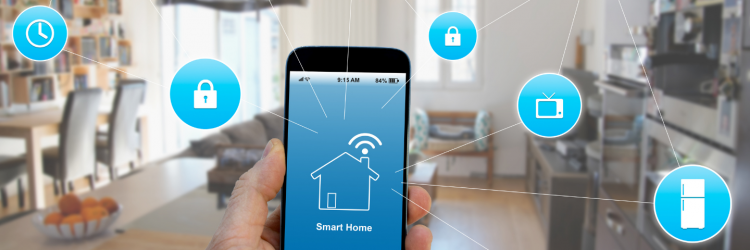Despite all the hype for smart homes, I've remained a skeptic for the 30 years or so since I first heard about the concept, partly because there wasn't a standard way for all the disparate devices to talk to each other. There wasn't a sort of operating system for the house, and a bunch of one-off devices weren't going to provide enough benefit.
Well, three of the biggest guns in the tech world -- Apple, Google and Amazon -- just announced a new standard for communication that will be available later this year. The standard, called Matter, will let just about all new smart home devices, and even many old ones, talk to each other.
Progress will still take time, and I remain to be convinced that many of the long-touted "benefits" of the smart home -- an internet-connected toaster or the ability to turn lights on and off remotely, for instance -- actually offer anything of value, but at least there will finally be a communication platform that will let companies, including insurers, tie all the benefits together and look for synergies.
To see how a platform like Matter can unleash a market, you can look to any number of examples from the history of technology. For instance, personal computers were available in the second half of the 1970s, but they all operated using different software. When IBM debuted its PC in 1981 and used a Microsoft operating system that any company could license, the standardization of the computing platform let the PC market take off. The search engine became far more powerful when Google became a standard. The market for music transformed when Spotify became the standard for streaming. In the physical world, Amazon's Prime has set a standard for shipping that has taken e-commerce to new heights.
Yes, all those standards have given rise to monopoly complaints. Google faces privacy concerns, too, and Spotify's attempts to build on its success and move beyond streaming have given it a great, big Joe Rogan problem. The monopoly and privacy concerns, if not problems with overreach, could well surface with smart homes at some point, but those are mostly to be dealt with down the road, after the market expands considerably. For now, standardization will almost entirely provide benefits.
For insurers, having an operating system for homes would help them work with technology suppliers and other partners to tie together sensors for water leaks, fire, radon and carbon monoxide, etc. and offer discounts on policies while better protecting clients. Building on Matter, insurers and partners could also better integrate those sensors and cameras with security systems that protect homes and offices. Insurers could also tap into devices such as the Amazon Echo and Google Home to provide voice alerts that a big storm is heading for your neighborhood, so you should remove anything from the patio that could get damaged or turn into a projectile, or that the possibility of a hail storm means you might want to keep your car in the garage all day.
Or whatever. The point is that, once you have a platform, innovations can build on each other, often in unexpected ways. And I think Matter could finally provide that platform for the smart home.
If you're interested in reading more, here is a Wall Street Journal article that explores Matter in some detail. Here is me complaining in 2016 about how the lack of a standard means of communicating limited the utility of smart home devices; the commentary includes links to a piece by an old colleague that goes into even more detail. Here is me in 2020 explaining that insurers will eventually have to make a business case for smart home technology and show that widely deploying, say, sensors for water leaks has to cost less than the price tag for the damage they would prevent -- concluding that we weren't there yet. And, lest you get the sense that I'm always pessimistic, here is a link to the ITL Focus from December, on smart homes, which includes some commentary from me, an interview with Mr. Telematics himself, Matteo Carbone, and six articles on what insurers are doing with smart homes.
Finally, my daughters suggest I steer you to a Disney movie called "Smart House" from 1999, which they recall watching as little kids. The movie is about a home that gets too smart for its own good, presaging at least some of the problems we might eventually encounter, but, remember, it's a Disney movie, so it has a happy ending.
Cheers,
Paul


